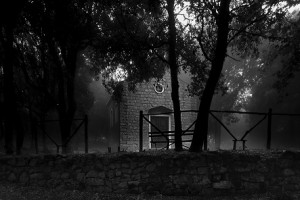It started out badly enough: a journalism background muddying the waters of my novel-creating.
My scrupulosity — the need to cite/confirm/reality-check everything — was getting in the way of just creating a high-stakes story.
I eventually separated that (in my head) by pretending I was one of those high-output authors who just roll with the story and write it as it comes, waiting till the story is done (and someone complains that it doesn’t work) before seriously considering that something is weird or unrealistic.
Last I checked, a lot of the reason people read is the alternative from reality. (As long as it supports their core view of reality — but that’s another conversation.)
Then, just a couple weeks ago, I shifted from a word-glut of novel-production (that is NaNoWriMo) to prepare for a sudden opportunity to bring storytelling into a local middle school.
And discovered another level of complexity.
It makes me think of the red Snap-On toolbox my dad used for his work as a mechanic in the first half of my growing-up years.
The thing was taller than me (with drawers that slid beautifully smooth, and a satisfying solidity that let one bang the drawer shut for clangs upon clunks as the tools collided at closing), and no matter how full it got, it never ceased to amaze me that a) more might fit or b) more were needed at all.
Eventually I learned about metric vs. empirical measurements, and the need (essentially) to double ones tool stash in order to best interact with different systems.
Add a third measurement system (tonakle?) and you start to see the convergence of journalism, noveling and storytelling.
All require similar skills, and understandings of a fairly consistent process or structure: Problems – real, natural, or created – are encountered, and decisions must be made and/or consequences ensue. That is the core of everything I deal in.
But journalism (what I began with my formal, college degree) uses what I would call the empirical system. It is (sometimes) less elegant, but definitely complete and logical. And (having the advantage of being brought up in the system), it feels as natural as any externally prescribed system to label the world I’m interacting with.
Words themselves are a system of labels, and God knows I’m comfortable with those.
Noveling, as I encounter and interact with it, is more like the metric system. Decidedly more elegant than raw journalism, “literature in a hurry,” noveling gets to make sense (in fact, most readers demand it).
Mark Twain is attributed with this gem: “Of course life is stranger than fiction. Fiction has to make sense.”
Sense and symmetry in journalism is like the beauty in nature as distinguished from the beauty in human-created art; it most-emphatically exists, but we don’t generally get to choose when.
That said, just like a good photographer can bring meaning and (through that) beauty with the angle of a lens, in the way s/he chooses to frame an image of reality, just so a journalist can seek or distill beauty from a hard place.
Noveling has the freedom to be deliberately beautiful, a freedom that can become a beloved obligation.
I’ve made peace with that. I’m wresting into cooperation my two major art forms of the last 13 years.
And then, Storytelling.
Orally. Out loud, in front of an audience: attentive or indifferent, it doesn’t matter.
Let me rephrase that: It most-definitely makes a difference how engaged the audience is, but my job doesn’t change. If I was more of an expert, I might feel more of an obligation to make sure the audience was connected, no matter what.
At my current level of skill, my focus must still be on the story as much as the audience, and if this particular story doesn’t connect with an individual, all I ask from that listener is a quiet patience till the end where you’ll soon get the chance to try an alternative on for size.
Storytelling is another animal altogether.
It has the requirements of the novel:
- It must entertain, or why will anyone listen?
- It has elegance and symmetry, because those are ingredients of beauty as well as aids to memory
But it also reminds me of journalism, because the stories tend to be short and spare– a description that invokes a reaction, not necessarily because of the exact words chosen (since the piece is seldom memorized) but primarily because of the content itself.
When I talk about massive snakes growing out of a man’s shoulders (something, in all my years of folklore I’d never seen before this story), people react. And why wouldn’t they? The original teller told it to get a reaction, and so do I.
That is the work of every journalist, every novelist and every storyteller. To grab the imagination of that consumer of our words.
Ah, but the means.
Knowing the difference between the systems has become so important. This is where the tools can start to slip, or have to be held so carefully in order not to strip the useful edges and angles from what we’re working on.









